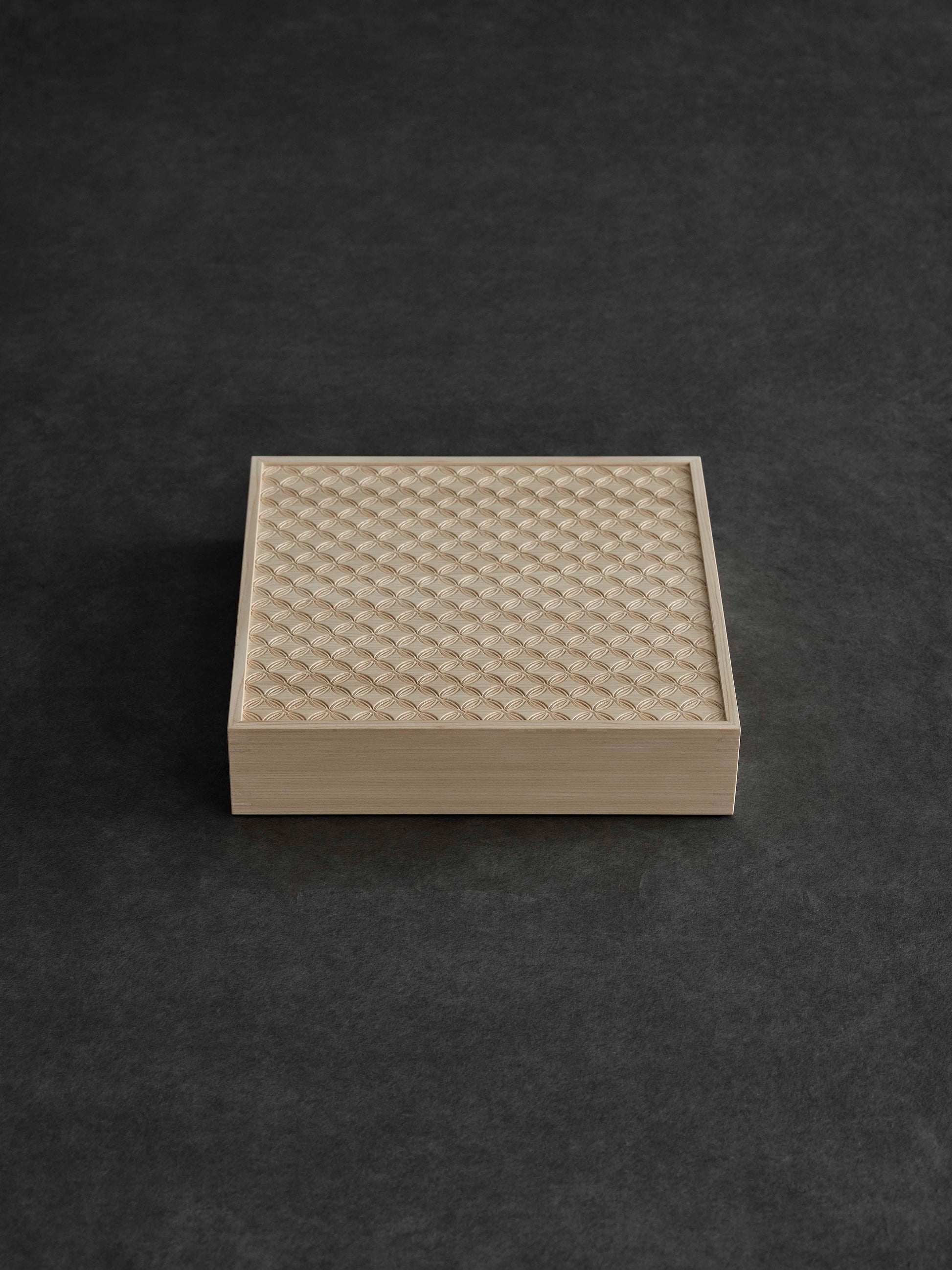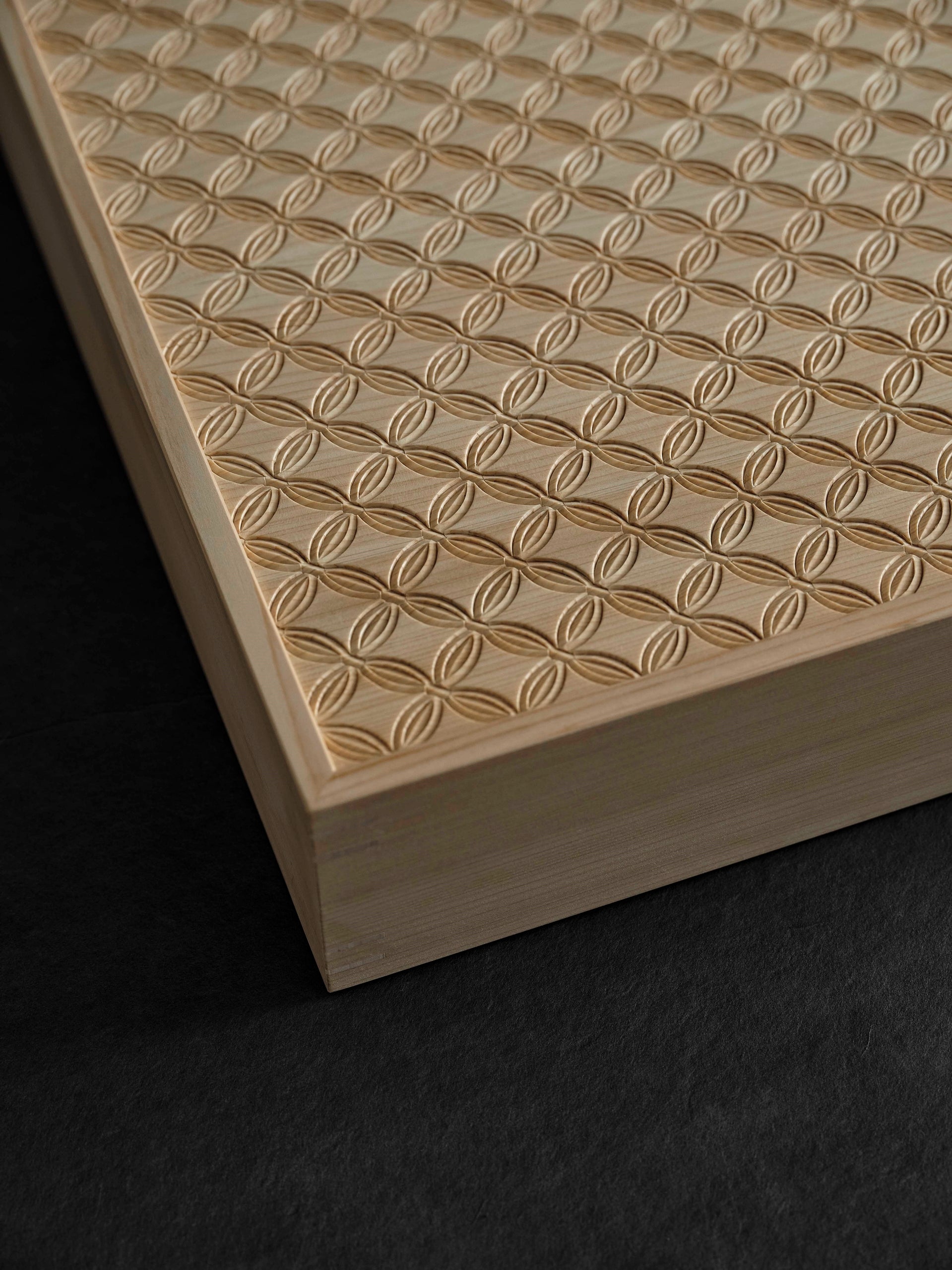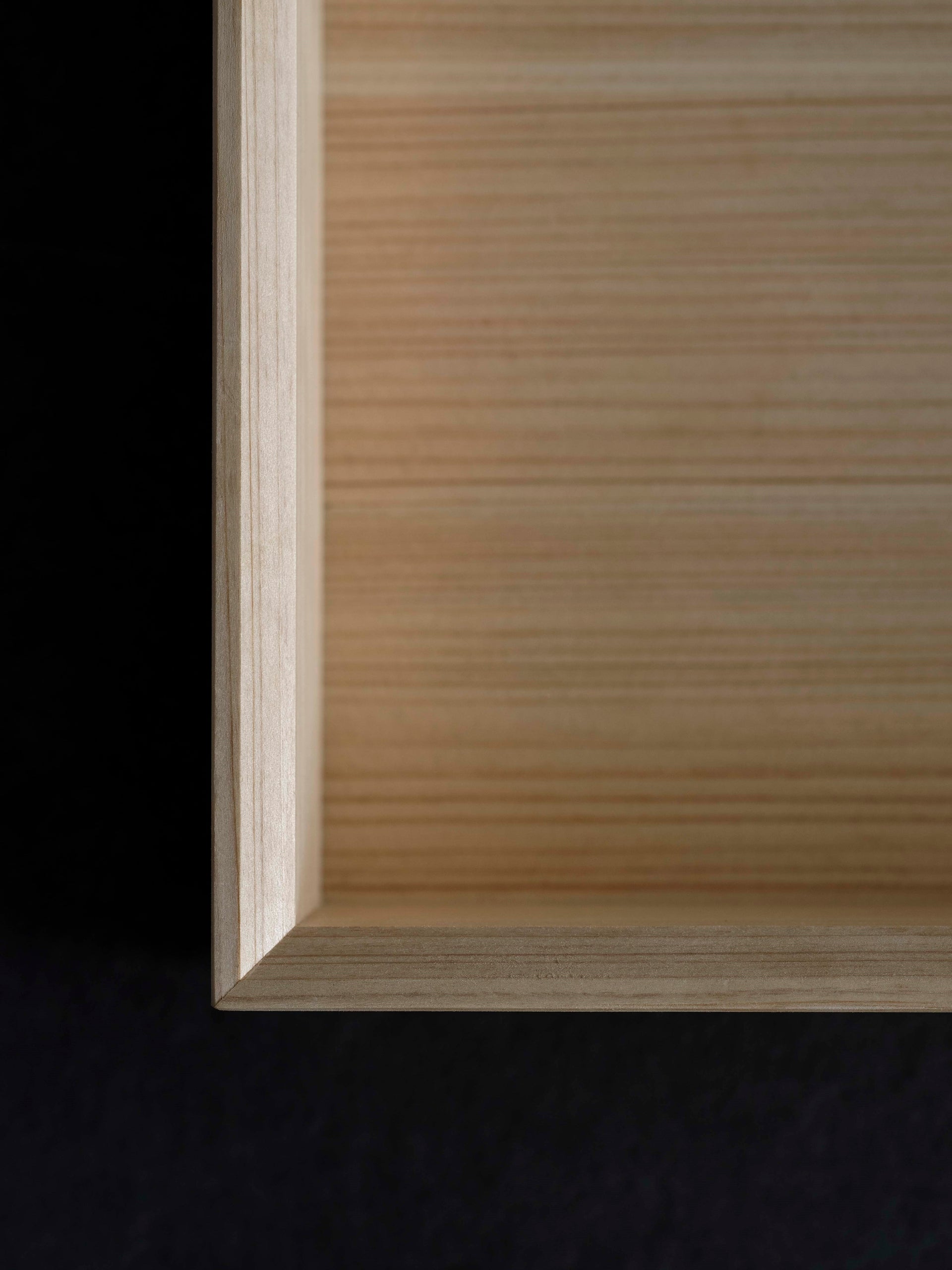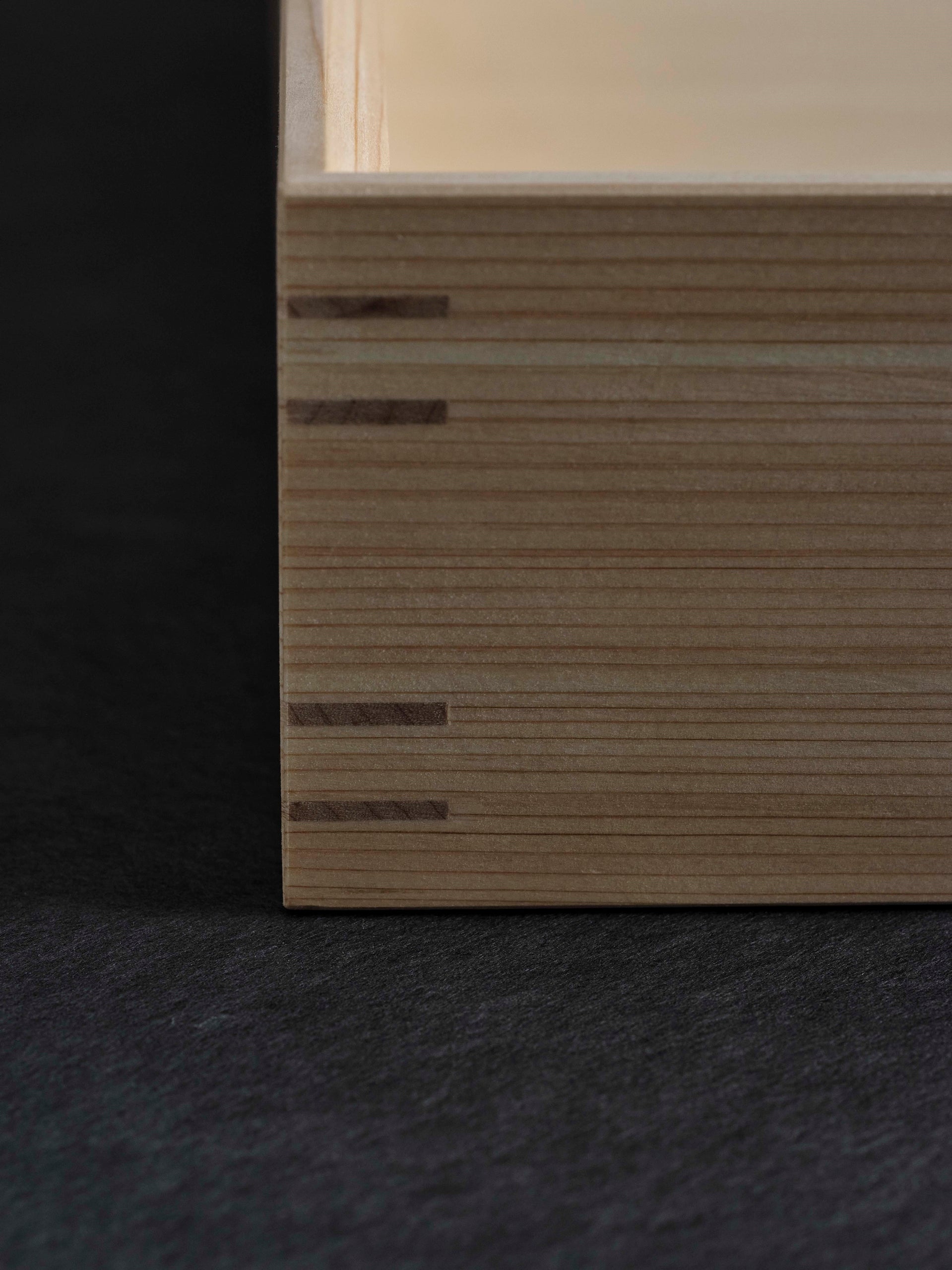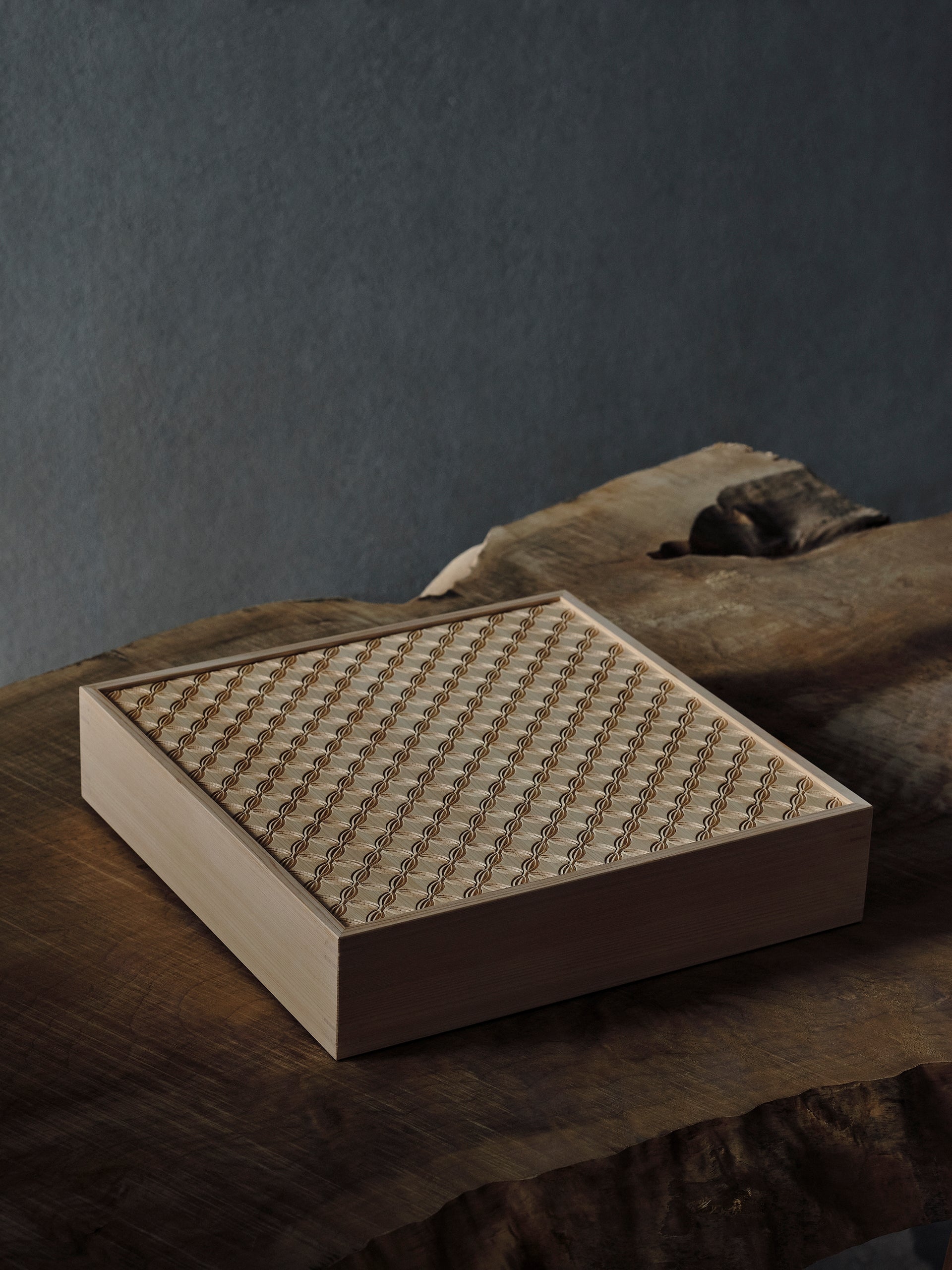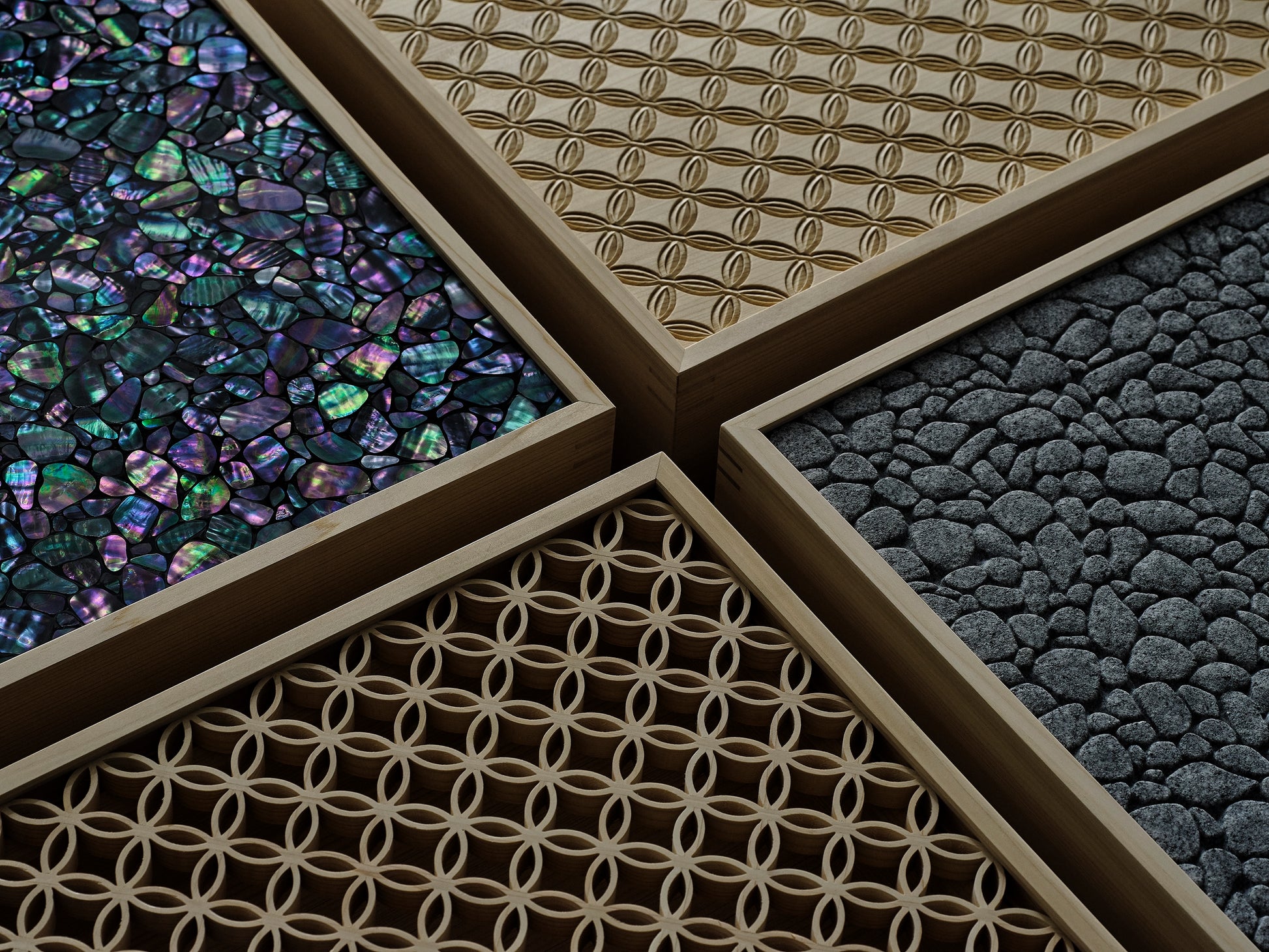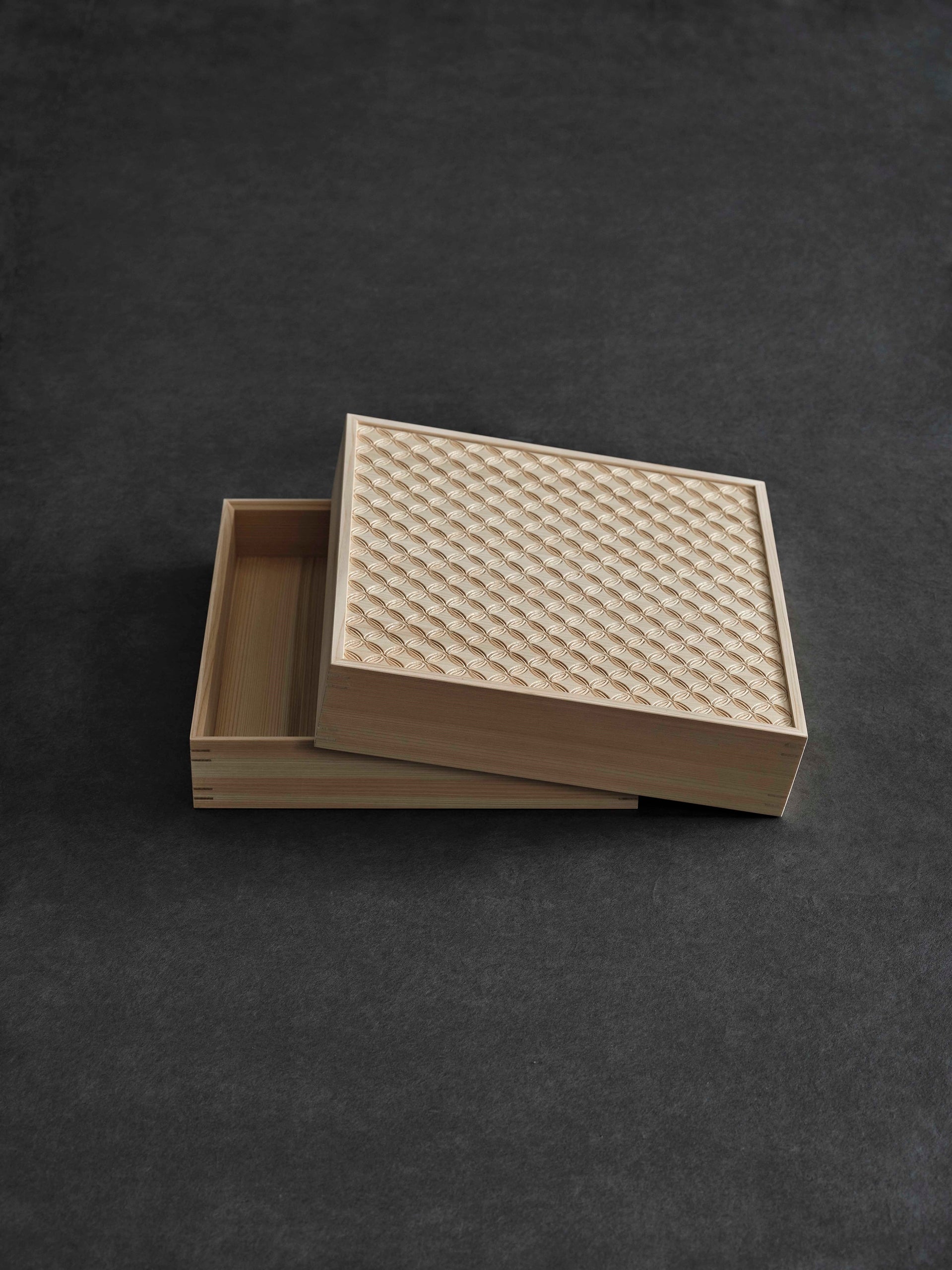Shippo (carving)
Shippo (carving)
Sold out
Hinoki cypress box decorated with auspicious formations. The shippo pattern, named after the seven treasures in Buddhist scriptures, adorns the lid, embodying wishes for harmony, balance and good relationships. Carved with immaculate precision, the geometric design enhances the majestic nature of the treasure box.
The box is sized to accommodate A4 documents.
TB-02
Size: W359×D359×H79.5 [mm]
Material: hinoki cypress
Free shipping within Japan
Couldn't load pickup availability
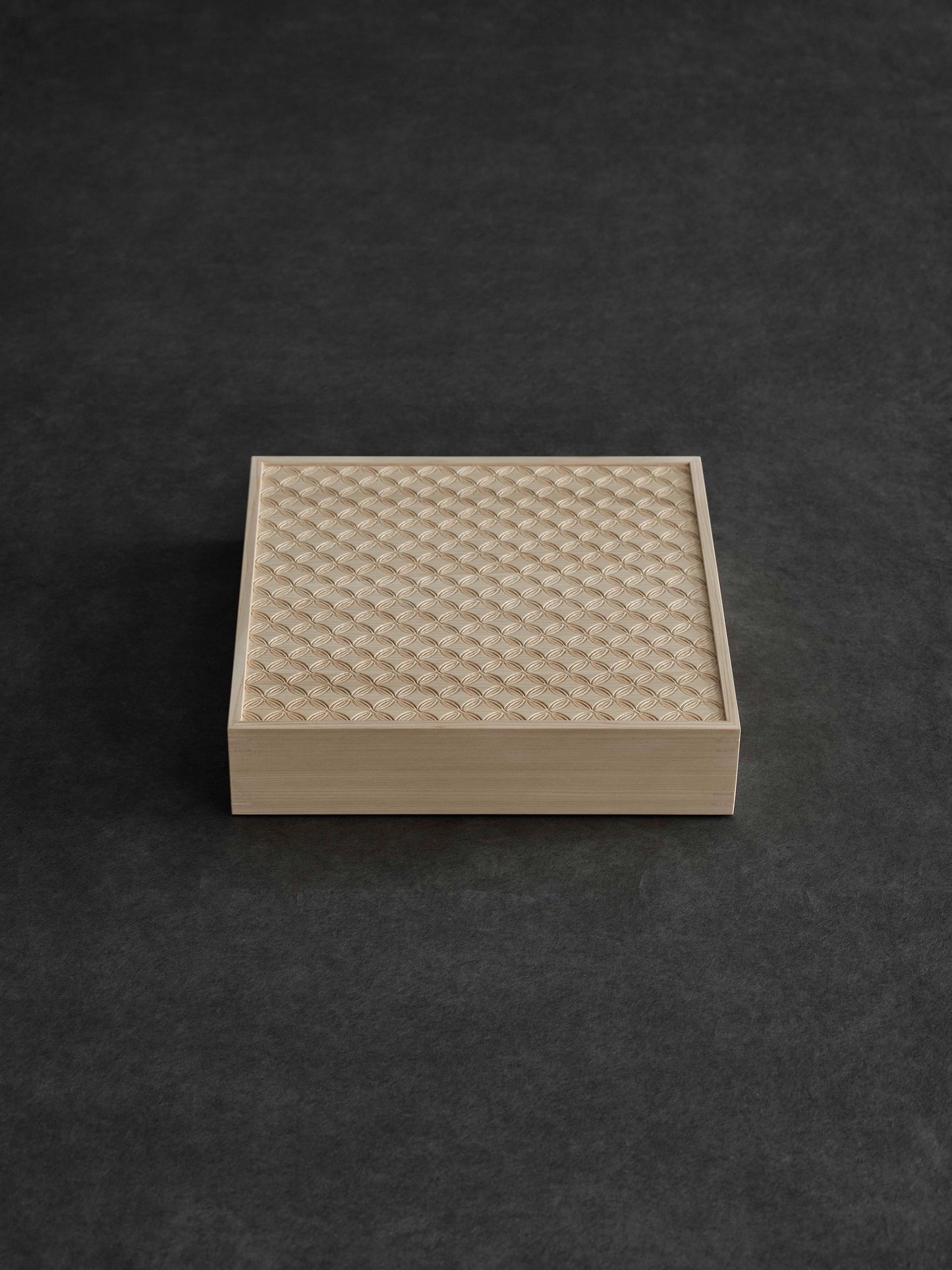
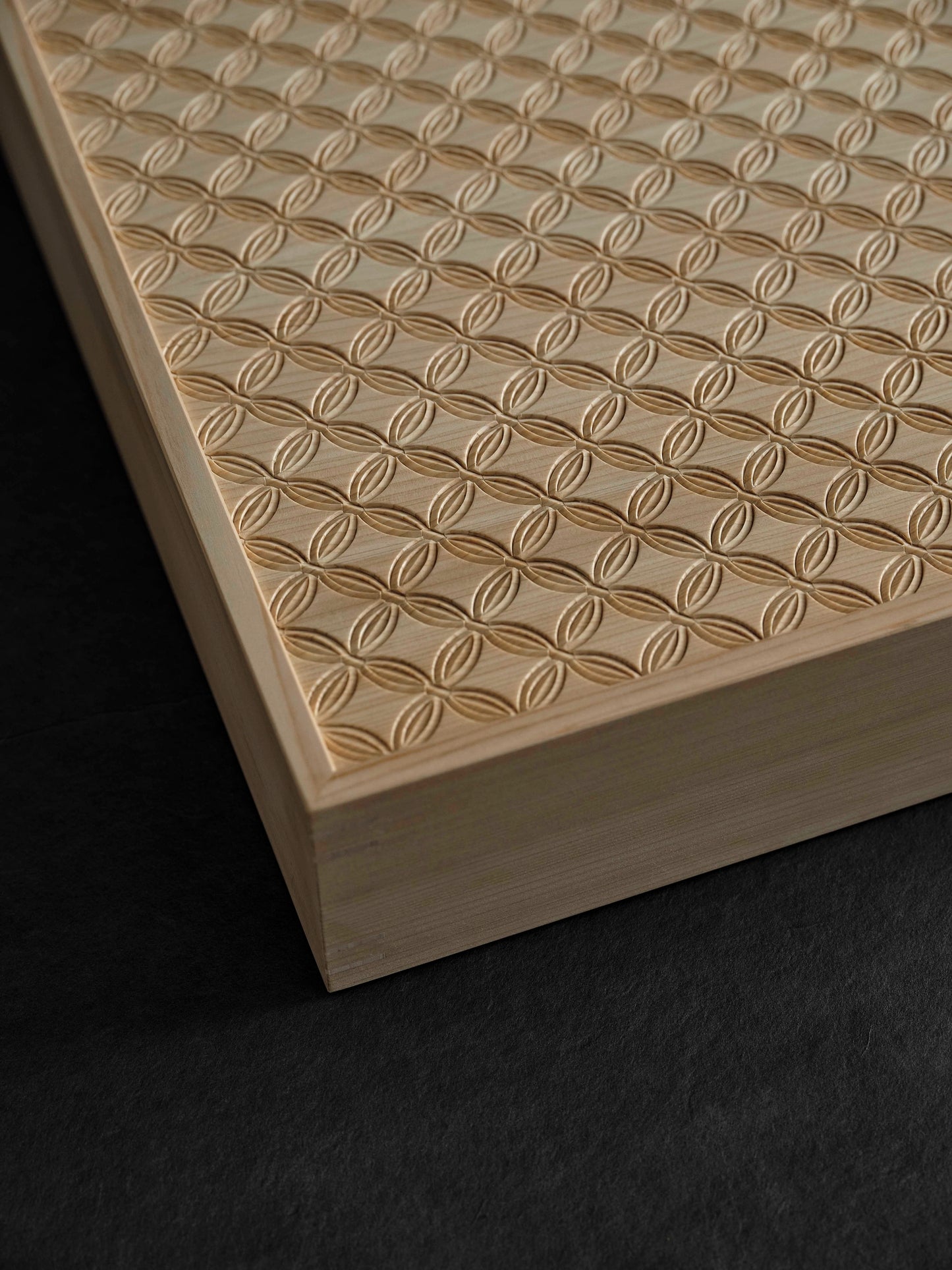
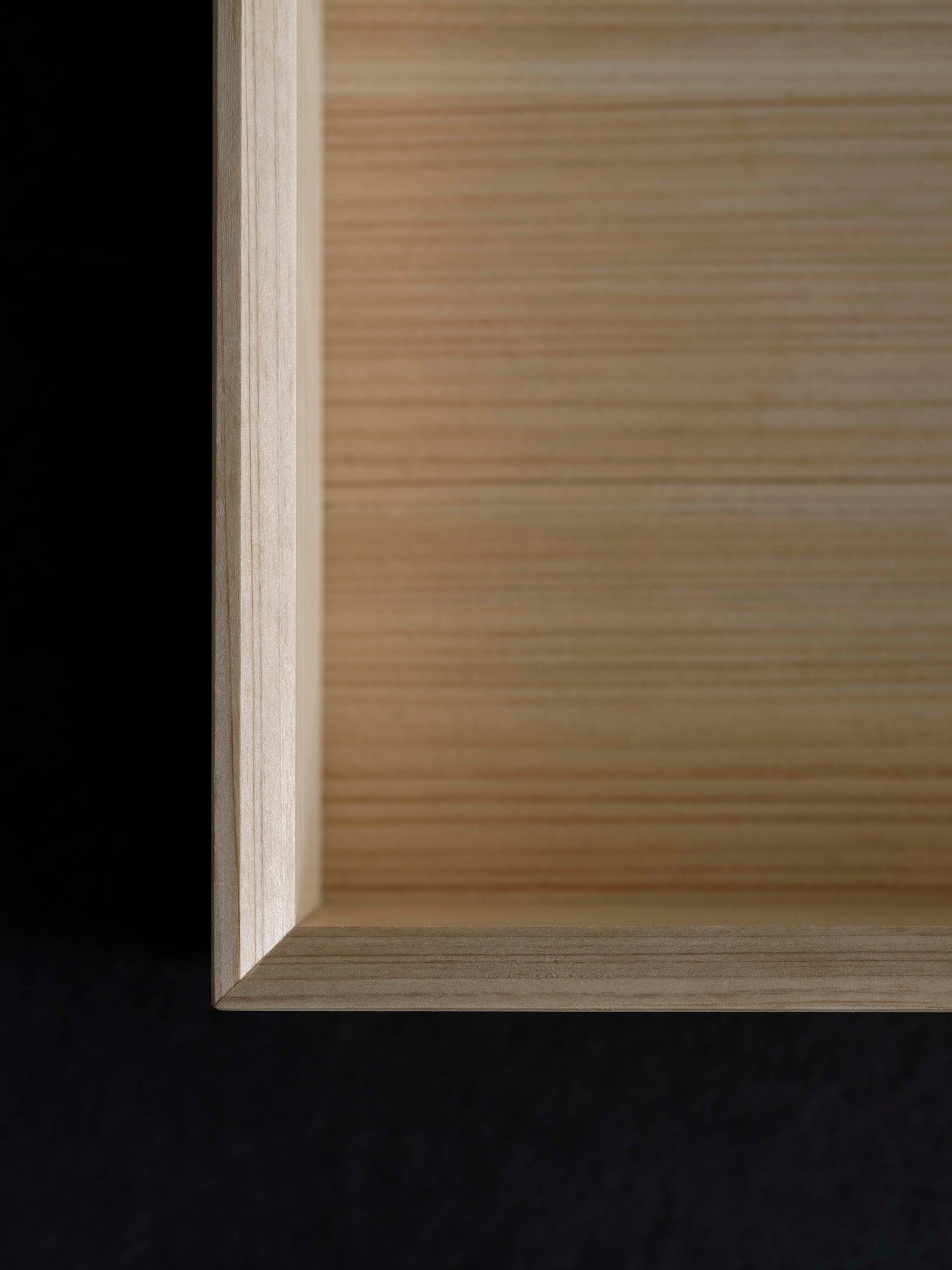
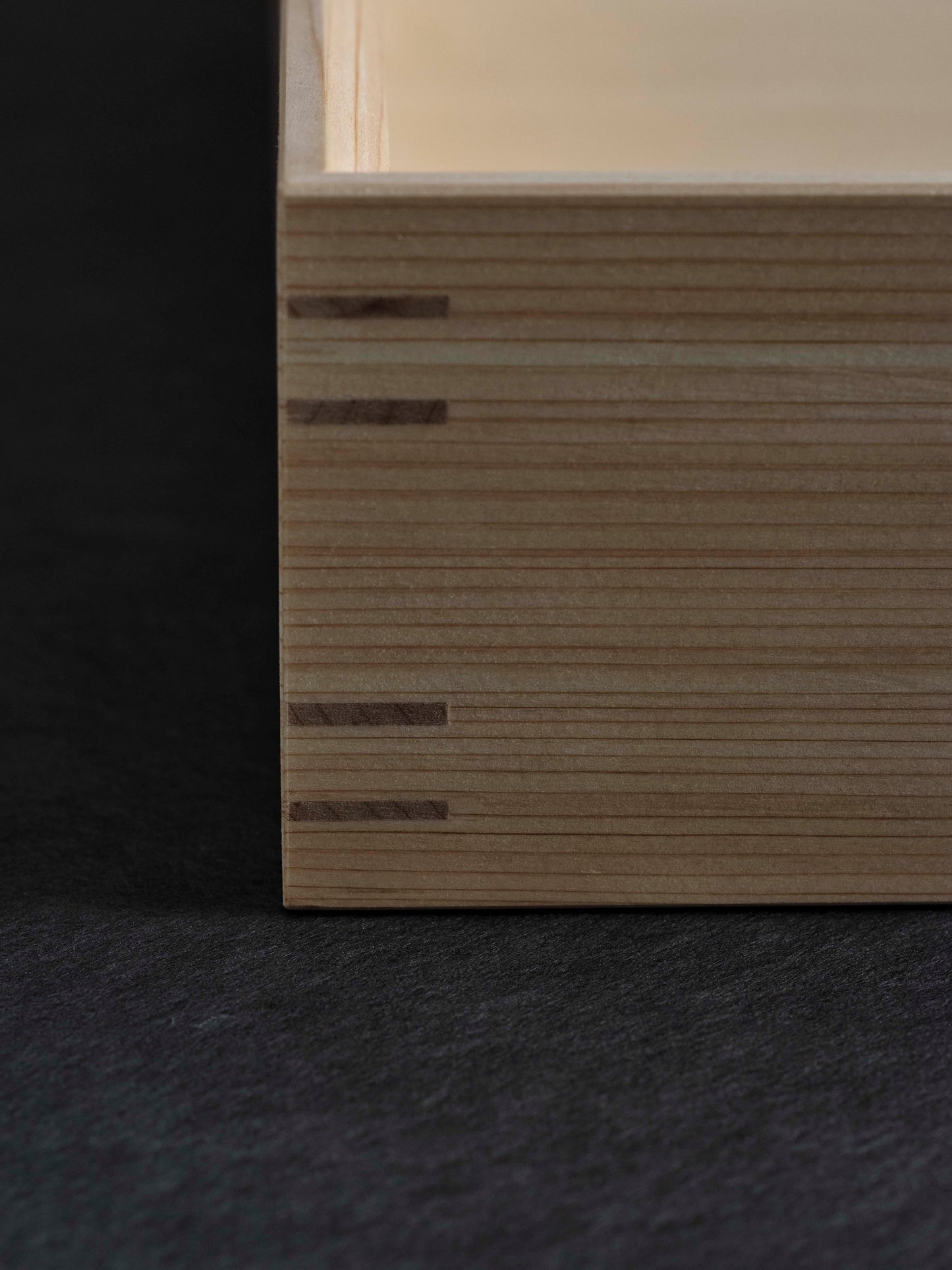
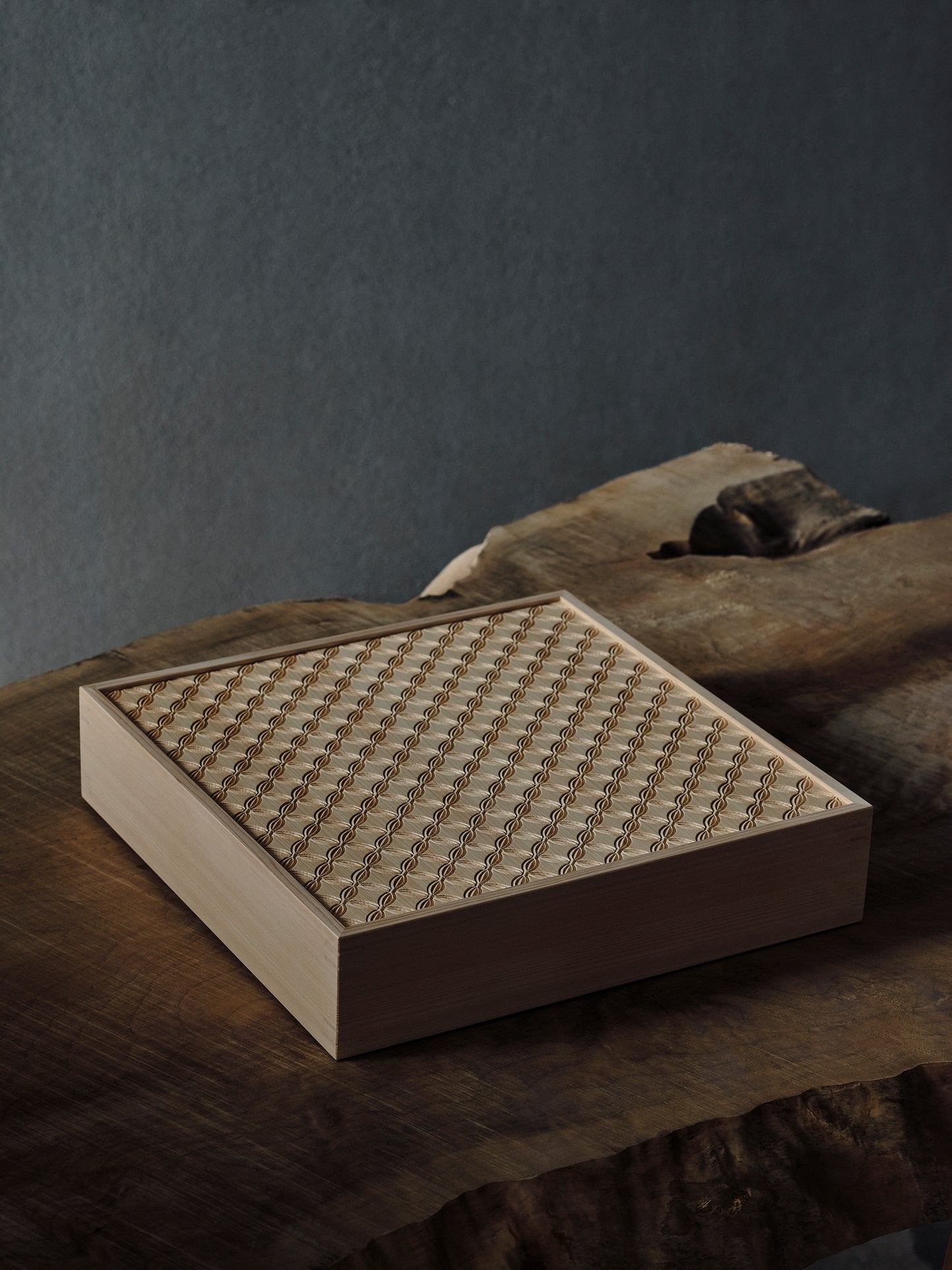
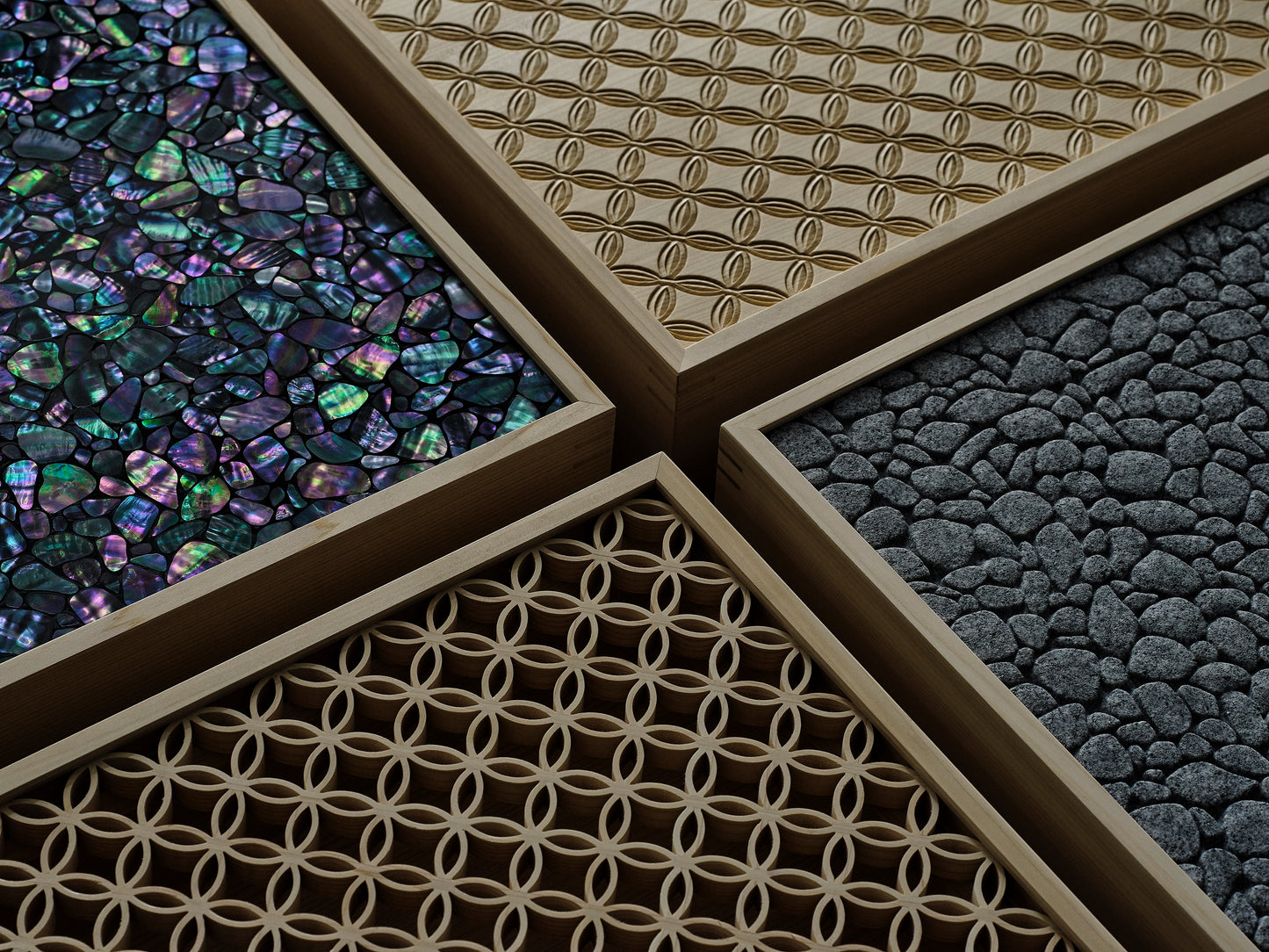
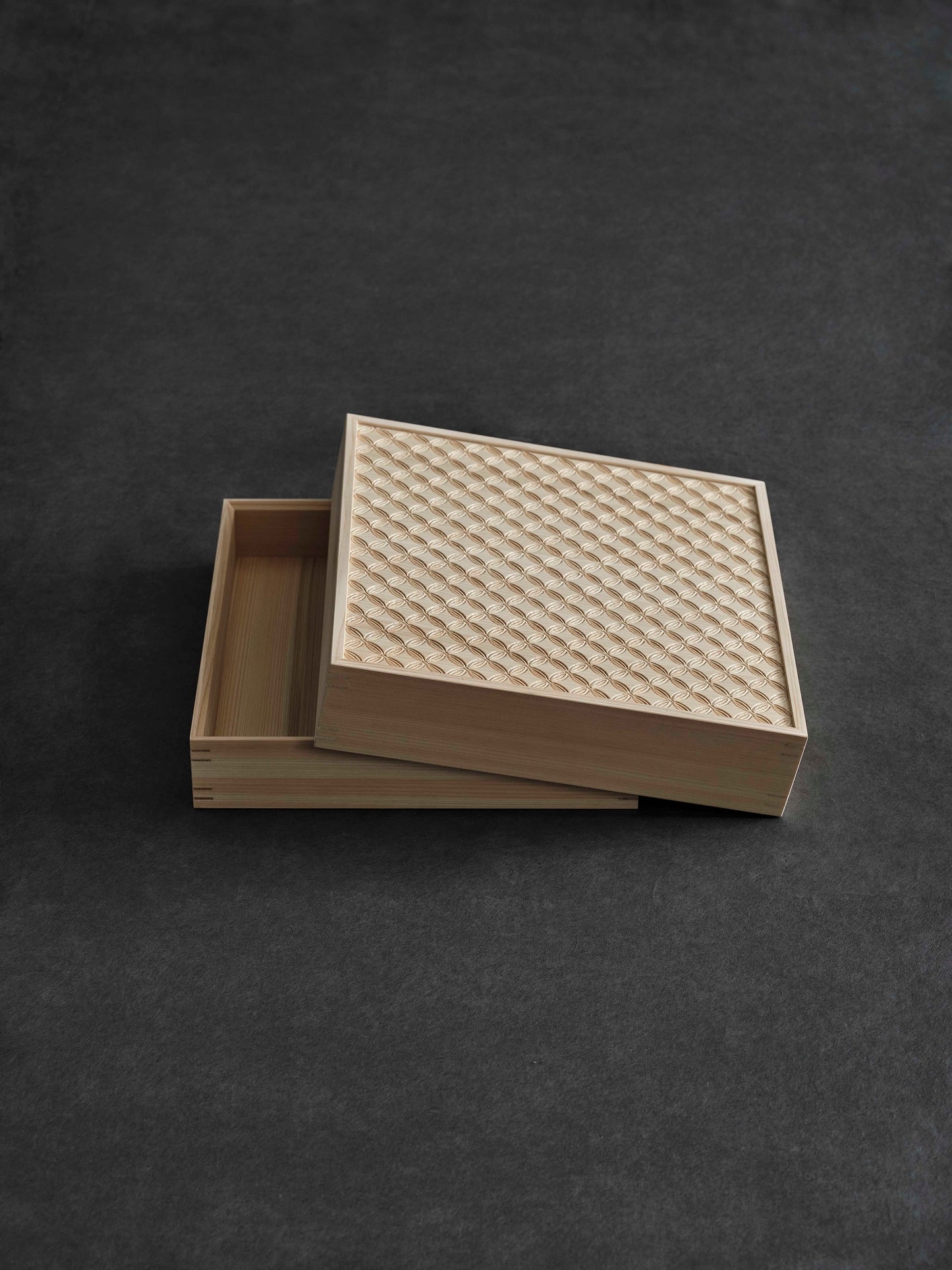
MATERIAL
Carving
The history of shrine and temple sculpture in Japan can be traced back to the introduction of Buddhism more than 1300 years ago. Japanese wood carvings possess a rich power of expression and intricate details, resulting in numerous works of historical significance. Influenced by Buddhism, many statues of Buddha were carved, followed by sculptural works that decorated the pillars and panels of shrines and temples, which later extended to decorative sculptures for homes and everyday items. Utilising various materials, techniques and tools, a range of three-dimensional works continue to be produced today.
MANUFACTURE
Toyota Sculpture Studio
Toyota Sculpture Studio’s first-generation artisan Yutaka Toyota began work as a sculptor’s apprentice in Kagawa prefecture in 1955. During the large-scale renovation of Nikko Toshugu, a World Heritage-listed shrine decorated with innumerable sculptures, he relocated to the town of Yorii in Osato, Saitama, and founded the studio in 1959. Now led by the experienced second-generation artisan Yasunari Toyota, the studio works mainly on the production and restoration of sculptures for temples and shrines. It also promotes the culture of sculpture and works with young artisans to move contemporary craftsmanship forward.
MANUFACTURE
Yoshihara Woodworks
Founded in 1958 in the city of Hamada, Shimane prefecture. In a workshop nestled in the hills, the company mainly produced wedding furniture in its early years, and is now known for fittings such as shoji screens and kumiko. Keiji Yoshihara, the second-generation master, renovated the facilities to “create an environment where craftspeople can work with pride”. The spacious studio is now also a training ground for many future artisans.
CARE
Usage precautions
- Due to the handmade nature of this item, some natural variations may occur.
- Place the item on a safe, stable surface.
- If the item becomes wet, dry it immediately. Allowing the item to remain wet will result in mould forming.
- The item is made from soft, unfinished wood, so please handle it with care.
- To remove dust, clean gently with a feather duster or similar tool that uses static electricity, or use an air sprayer.
- To remove dirt, use a well-wrung cloth.
- Avoid exposure to direct sunlight and heat as this will result in discolouration and deterioration.
